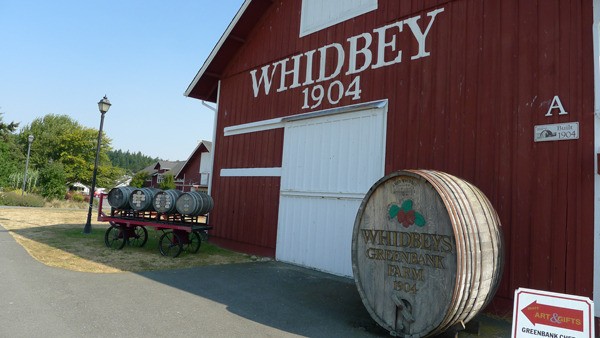A plan to revamp Greenbank Farm and increase its economic viability won’t be considered by the Port of Coupeville until next year.
The plan, presented by Island County Washington State University Extension officials, aims to nudge the financially struggling farm further into the world of “edu-tourism” providing an active educational facility that could be used by students and visitors alike.
Port officials said they are bound by the district’s current management agreement, but want to discuss the plan in the future.
WSU Extension staff said they believe the port should be more excited about the proposal.
“I was disappointed in the response,” Director Tim Lawrence said. “It seems they left the door open, but not very wide.”
The port is juggling budgetary priorities under their ever-tightening funding constraints. Greenbank Farm has a problematic sewage system that will need an overhaul, and the Coupeville Wharf has been wracked with storm- and age-related maintenance problems over the past year.
The port has only $180,000 in its undedicated fund, which it needs to last the next three years until the current bond for Greenbank Farm is repaid.
Currently the port pays approximately $106,000 annually on the bond.
Lawrence said that WSU’s proposal for Greenbank Farm will likely take several years to realize, so getting started soon is key.
“They don’t see a vision,” Lawrence said.
The WSU vision includes expansion of the school’s curricula in agriculture, food systems and hospitality to Greenbank Farm.
Students could attend courses in on-site classrooms, receive valuable hands-on experience, complete internships and earn small farming certifications, according to Lawrence.
“I think it’s a great opportunity for Whidbey Island to have a permanent four-year school here,” Port of Coupeville Executive Director Tim McDonald said.
However, the port is not in a position to discuss the WSU proposal until their current lease agreement with the Greenbank Farm Management Group expires in June 2015 and a new farm manager is selected.
“It’s really not the time,” McDonald said.
McDonald said the port is accepting management applications through Sept. 24, but hasn’t received any applications as of press time Friday.
McDonald said he thinks the port commissioners’ response to WSU, written by Commissioner Mike Diamanti, was positive.
“I think the port board is enthusiastic about working with WSU to establish a significant presence at Greenbank Farm,” McDonald said. “But there are business issues that need to be taken care of first.”
Island County Economic Development Council Executive Director Ron Nelson said that these types of educational positions would inject good, professional-wage jobs into the county that fit with its rural character and charm.
Making Greenbank Farm more of an educational facility would create revenue during the island’s non-tourist months, Nelson said. Plus it would diversify the types of revenue coming into the local economy, which currently balances precariously between the Navy base and home construction.
“We really need to diversify,” Nelson said.
Nelson said he understands the port’s hesitance to jump on the bandwagon.
“They have a fiscal responsibility,” Nelson said. “They’re saying, ‘We have a money problem,’ and that’s fair. However, we have other opportunities. How do we make this a win-win for the current tenants, the county and Greenbank Farm?”
For example, the port could use rural development funds to assist Greenbank in building necessary infrastructure and fix the sewage problems currently faced by the farm, Nelson said.
“There’s a lot of positive potential.”
“It is so tough to grow the appropriate businesses in Island County,” Nelson said. “It’s very, very hard, but this fits.”



